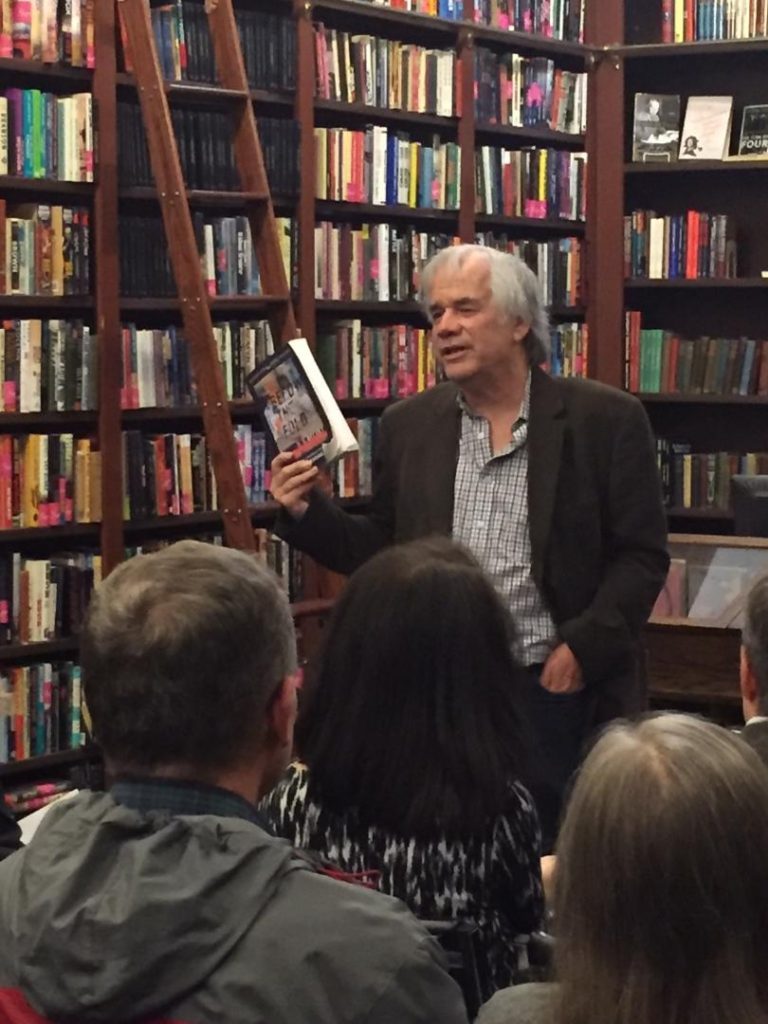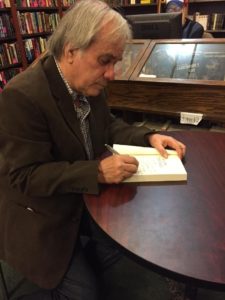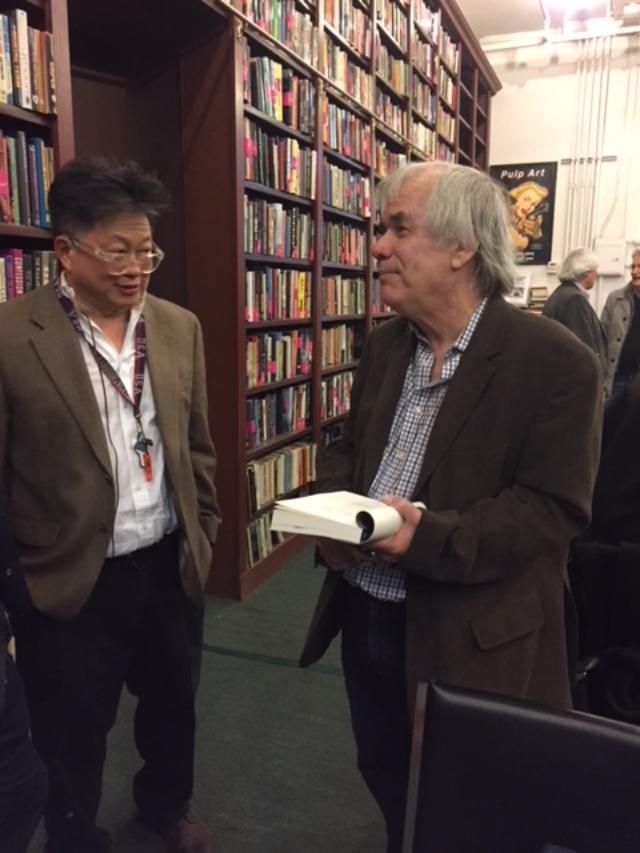 In the time, it’s taken me to think about, write, edit and revise my third novel, author R.G. Belsky has written five mysteries. This week, his latest, Below The Fold was published.
In the time, it’s taken me to think about, write, edit and revise my third novel, author R.G. Belsky has written five mysteries. This week, his latest, Below The Fold was published.
Belsky and I worked for the same employers and publications for decades — without ever actually working together. But a book launch party is a party, and authors successful enough to be published must be celebrated — especially if the launch party takes place in the most suitable of locations like the iconic Mysterious Bookshop in New York City.
Murder Of A “Nobody”

Below The Fold, like Belsky’s previous novels, features a news journalist as the protagonist. In this one, it’s Clare Carlson, the news director of a New York City TV station. This is her second outing (after last years Yesterday’s News which won the Claymore Award at 2016 Killer Nashville and was named 2018 Outstanding Crime/News Based Novel by Just Reviews.)
This time the action starts with the murder of a “nobody,” a homeless woman that was nicknamed, Cinderella. (If it’s not exactly clear to non-journalists, “below the fold” is a description applied to print news stories that appear at the bottom of a page (below the fold of a newspaper) and so are technically of lesser importance in the news ratings.)
Carlson’s determination to unravel the story of Cinderella leads her into a deeper morass of scandal and corruption involving the wealthy and influential in the city.
Belsky has a total of 12 published mysteries under his belt. Five of them have been published since 2012 (the year I decided to resume writing fiction.) So how does he do it?
Surefire Way
He has one golden rule that sounds like a surefire way of getting words onto the page — which, of course, you need to do before you can edit, revise, and get your work published. He admits he borrowed the rule from “the greatest mystery author ever,” Raymond Chandler.
I’ve heard Belsky talk about this rule before. Most recently he told crime writer James Ziskin at The Big Thrill magazine: “Chandler once said the key to writing was to set aside a certain amount of time each day where you don’t allow yourself to do anything but write. No TV, no reading, no paying bills or writing notes. You don’t have to write, but you can’t do anything else. Either write or nothing.”
Writes Fast/No Outlines

Belsky told me it can take him less than a year to write a book. “As a longtime tabloid journalist, I write very fast,” he said. “Most people figure it takes about a year to write a book – but I’ve done it in much less, just several months. Of course, I’ve spent time before that thinking about the story and characters etc. I actually love to have a deadline that’s pretty tight – again, my old tabloid days experience.
“I’ve never written from an outline, never even done one, “ he tells me. “I basically start out with a beginning and a vague idea of how I think the story will end – with no idea how I’m going to get there. I like to just let the story flow as I go along.
“Frequently it surprises me – and in a good way. I don’t do a lot of editing or revising while I’m writing. I try to just keep pushing through for a first draft. Then I go back over everything for edits/revisions. But I probably do less of that than a lot of authors. I often find my first instinct on how to write a story is the best.
Daily Writing Routine

As is the case with most successful authors — think Stephen King and James Patterson — it comes as no surprise that Belsky writes every day.
“I generally write about four hours a day – but I don’t time it, “ he said. “I just write until I feel I’ve accomplished what I want that day. Always in the morning too, I’m more creative in the morning.
“I try to write something every day of the week. But no set number of words or anything. I know there are authors who set themselves a word count, or an hour count for writing every day. I’m not one of them.
“But even when I worked a newspaper desk shift that began at 6 a.m. I got up at 4 to write for an hour before heading to the office. People ask me how I can do both: my answer is because the two jobs – journalist and fiction author – are so different. As a journalist, I spend most of my day checking and re-checking that all the facts in a story are right. As a fiction author, I get to make up the story. Now that’s fun!”
Three-Book Deal

A third Clare Carlson mystery, The Last Scoop, is scheduled for May, 2020 from Oceanview Publishing. Although these days, the maxim “write about what you know” tends to get short shrift because you can research anything on the Internet, all of Belsky’s mysteries are set in New York City which he knows like the proverbial back of his hand.
And, his protagonists are mostly tabloid journalists — a life he has himself lived at the City’s famed tabloid newspapers, The New York Post and the New York Daily News as well as serving a stint as news editor of Star Magazine (— a position which I held a few years before Belsky arrived at the magazine.)
Hence, his mysteries tend to reek of authenticity. What he’s never had, however, is the experience of living the tabloid life as a woman. Clare Carlson is the third female protagonist he has written in a first person POV. She’s a flawed character to the extent that she’s been married and divorced three times and can’t keep a relationship going for very long. Which, as I can attest, is pretty much par for the course. Being a news journalist is a 24/7 profession that takes it toll on any individual, male or female. But she’s a good reporter with a strong moral compass.
It’s Always The Outfit!!!!
I asked Belsky if he’s ever been told that he’s gotten something wrong from the female POV. “No,” he said. “The only thing an editor once criticized was the way I dressed a female protagonist. She objected to my character wearing jeans to the office and asked me to rewrite her outfit. When the book came out my female colleagues laughed and said none of them would wear what I’d described.”